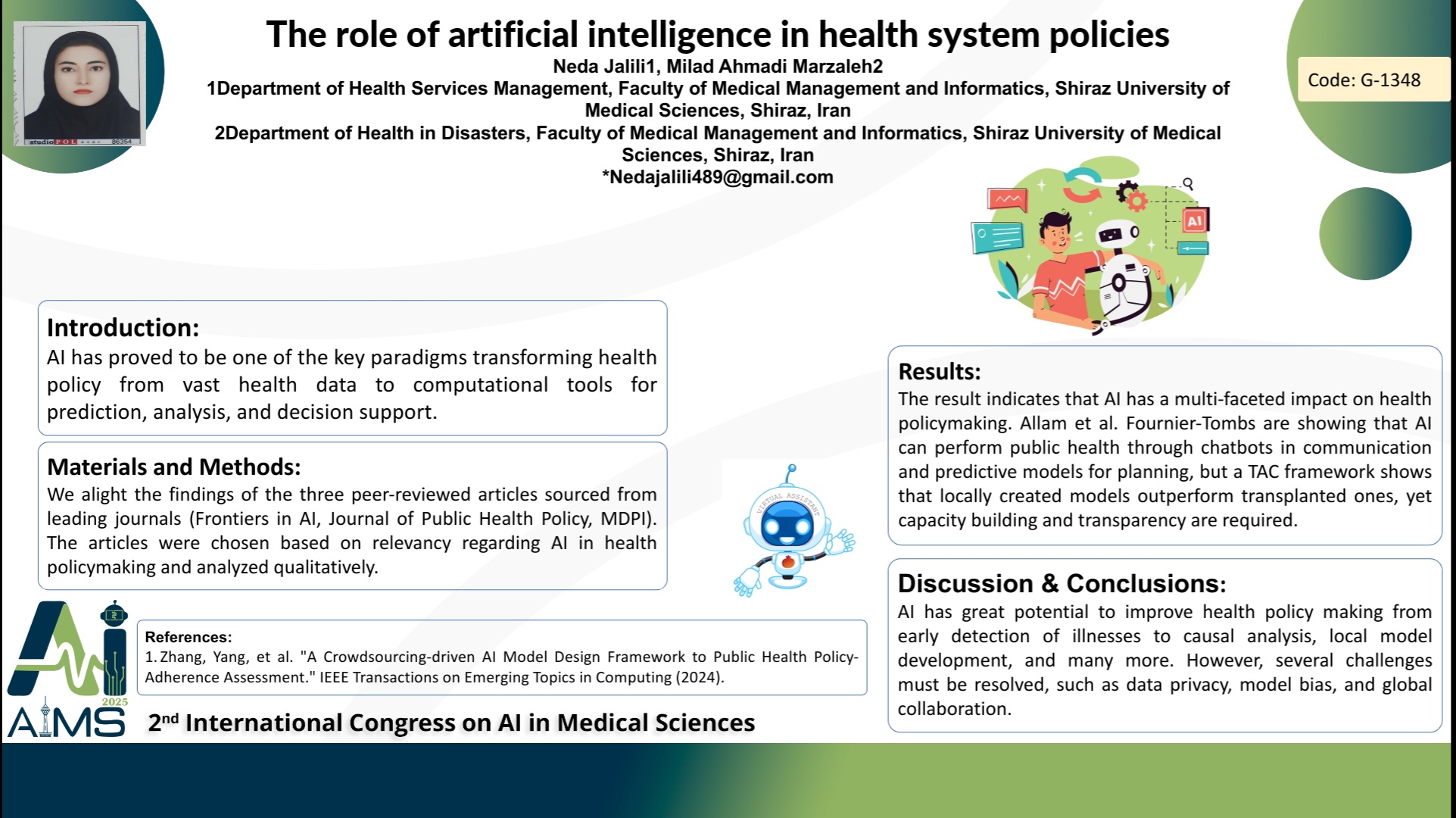نقش هوش مصنوعی در سیاست های نظام سلامت
کد: G-1348
نویسندگان: Neda Jalili * ℗, Milad Ahmadi Marzaleh
زمان بندی: زمان بندی نشده!
برچسب: سیاست گذاری، قانون گذاری و مدیریت سلامت در حوزه هوش مصنوعی
دانلود: دانلود پوستر
خلاصه مقاله:
خلاصه مقاله
Background: AI has proved to be one of the key paradigms transforming health policy from vast health data to computational tools for prediction, analysis, and decision support. However, the fast adoption of AI in public health has accelerated, as it has helped solve multifactorial challenges. Fournier-Tombs (2023) emphasized AI applications in his discussions within and beyond COVID-19 in health service planning, public communication, and the tracking of infections. Methods: We alight the findings of the three peer-reviewed articles sourced from leading journals (Frontiers in AI, Journal of Public Health Policy, MDPI). The articles were chosen based on relevancy regarding AI in health policymaking and analyzed qualitatively. A systematic review was done within databases (PubMed, Web of Science, and Scopus) for studies published since December 2015. Fournier-Tombs uses the TAC framework (Transplantation, Adaptation, Creation) to evaluate the localization of AI models. Naumova studies causal AI methods, combining philosophies with statistical tools, such as Hill's criteria, Granger causality, and Pearl's causal diagrams. Results: The result indicates that AI has a multi-faceted impact on health policymaking. Allam et al. Fournier-Tombs are showing that AI can perform public health through chatbots in communication and predictive models for planning, but a TAC framework shows that locally created models outperform transplanted ones, yet capacity building and transparency are required. Naumova proposed that causal AI utilizing causal diagrams can predict unintended policy consequences and improve decision-making. However, limitations, such as biased and imperfect datasets and the absence of standardized protocols for data sharing, inhibit all potential of AI. Conclusion: AI has great potential to improve health policy making from early detection of illnesses to causal analysis, local model development, and many more. However, several challenges must be resolved, such as data privacy, model bias, and global collaboration. Frameworks such as TAC and causal tools provide pathways for designing more effective interventions. To maximize AI's impact, standardized data-sharing protocols were recommended to improve accuracy and scalability. AI can become a central actor in urban health policies by forming timely and credible responses to public health emergencies.
کلمات کلیدی
Artificial Intelligence, Health Policy, Causal Analysis
